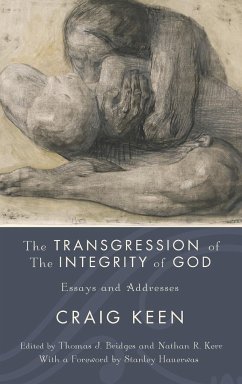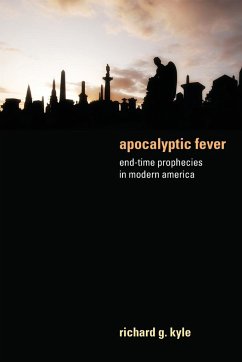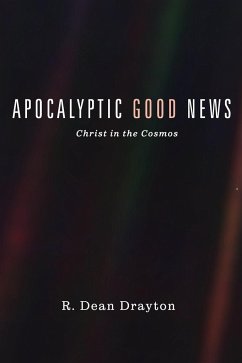
Christ, History and Apocalyptic
Versandkostenfrei!
Versandfertig in 1-2 Wochen
40,99 €
inkl. MwSt.
Weitere Ausgaben:

PAYBACK Punkte
20 °P sammeln!
This book offers a comprehensive reflection on what it means that Christians claim that "Jesus is Lord" by engaging in a defense of Christian apocalyptic as the criterion for evaluating the "truth" of history and of history's relation to the transcendent political reality that theology calls "the Kingdom of God." The heart of this work comprises an original genealogical analysis of twentieth-century theological encounters with the modern historicist problematic through a series of critical engagements with the work of Ernst Troeltsch, Karl Barth, Stanley Hauerwas, and John Howard Yoder. Bringi...
This book offers a comprehensive reflection on what it means that Christians claim that "Jesus is Lord" by engaging in a defense of Christian apocalyptic as the criterion for evaluating the "truth" of history and of history's relation to the transcendent political reality that theology calls "the Kingdom of God." The heart of this work comprises an original genealogical analysis of twentieth-century theological encounters with the modern historicist problematic through a series of critical engagements with the work of Ernst Troeltsch, Karl Barth, Stanley Hauerwas, and John Howard Yoder. Bringing these thinkers into conversation at key points with the work of Walter Benjamin, Carl Schmitt, John Milbank, and Michel de Certeau, among others, this genealogy analyzes and exposes the ideologically "Constantinian" assumptions shared by both modern "liberal" and contemporary "post-liberal" accounts of Christian "politics" and "mission." On the basis of a rereading of John Howard Yoder's place within this genealogy, the author outlines an alternative "apocalyptic historicism," which conceives the work of Christian politics as a mode of subversive, missionary encounter between church and world. The result is a profoundly original vision of history that at once calls for and is empowered by a Christian apocalyptic politics, in which the ideologically reductionist concerns for political effectiveness and productivity are surpassed by way of a missionary praxis of subversion and liberation rooted in liturgy and doxology.













